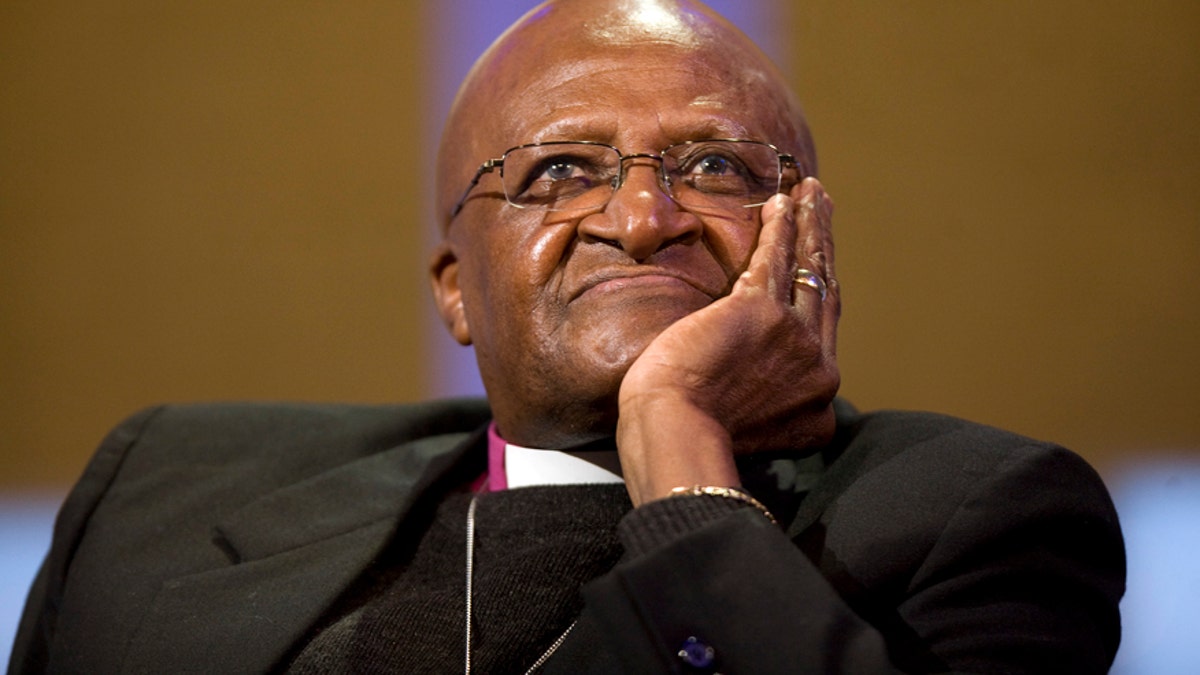
(Reuters)
Editor's note: We all need to forgive, and there are many of us who need forgiveness. The question is, how do we forgive? In their new book, "The Book of Forgiving," Archbishop Tutu and his daughter Mpho Tutu share their experiences, the stories of others who have inspired them, and what they have learned about the process of forgiving, to help all of us learn the answer to this. And, they are calling YOU to join the Tutu Global Forgiveness Challenge, to join them in undertaking the path for healing ourselves and our world.
The ability to separate the sin from the sinner is not a matter of faith or religion; neither is forgiveness. The Forgiveness Cycle is a universal and nonsectarian cycle. Obviously, in Mpho’s faith and mine, our model of the ultimate example of forgiveness is Jesus Christ, who on the cross was able to ask for forgiveness for those who were torturing and ultimately killed him.
But forgiveness does not require faith. For some people faith makes the process easier. But just as we do not forgive for others, we also do not forgive for God.
[pullquote]
I will not label anyone beyond redemption, regardless of what that person has done. I have found that hope and goodness can sometimes emerge from even the unlikeliest of packages.
As we have seen, forgiving does not condone an act.
Forgiveness does not relieve someone of responsibility for what they have done. Forgiveness does not erase accountability. It is not about turning a blind eye or even turning the other cheek.
It is not about letting someone off the hook or saying it is okay to do something monstrous.
Forgiveness is simply about understanding that every one of us is both inherently good and inherently flawed. Within every hopeless situation and every seemingly hopeless person lies the possibility of transformation.
So when I am asked whether some people are beyond forgiveness, my answer is no. My heart has been broken a thousand times over at the cruelty and suffering I have seen human beings unjustly and mercilessly inflict upon one another. Yet still I know and believe that forgiveness is always called for, and reconciliation is always possible.
My words are not a magic eraser, able to wipe away the deep harm and suffering we may feel. True forgiveness is not superficial or glib. It is a deep and thorough look at the reality of a situation. It is an honest accounting of both actions and consequences. It is a conversation that is only done when it is done. It is a path as unique as the people who choose to walk it. My path
may not be the same as yours. But the thing that makes us walk this path is the same.
We all want to be free of the pain of living with a broken and unforgiving heart. We want to free ourselves of the corrosive emotions that threaten to burn away the love and joy residing in us. We want to heal our broken places. It would be wonderful if we lived in a world where there was no harm, no hurt, no violence, no cruelty. I have certainly not lived my life in such a world, but I do believe it to be possible. Surely he must be senile, you say.
But these are not the fantastical beliefs of a man of advanced years. I know in my heart that peace is possible. I know it is possible in your life, and I know it is possible in mine. I know it is possible for our children, our grandchildren, and the generations that follow. But I also know that it is only possible if this peace begins with each of us. Peace is built with every small and large act of forgiveness.
Excerpted from "The Book of Forgiving," by Archbishop Desmond Tutu and Reverend Mpho Tutu, reprinted with permission by HarperOne, an imprint of HarperCollins Publishers. Copyright 2014.
To sign up for the Tutu Global Forgiveness Challenge, visitforgivenesschallenge.com.
